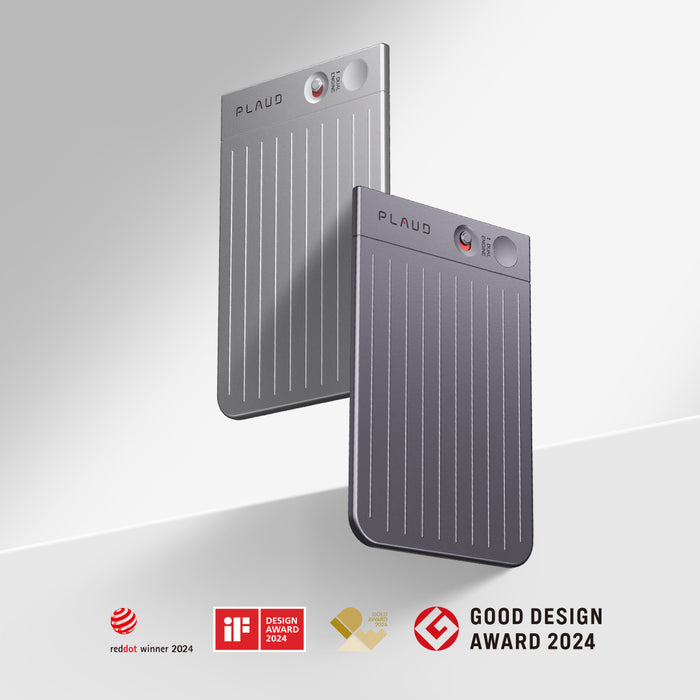Unlock the Future: Discover the Best AI Voice Recorder for Your Needs!
In today's fast-paced digital world, the demand for efficient and effective tools for capturing and organizing information has surged. AI voice recorders have emerged as essential devices in various fields, from business to education and personal use. Unlike traditional voice recorders, AI voice recorders leverage advanced artificial intelligence technology to enhance recording quality, facilitate easy transcription, and ensure a seamless user experience. This article aims to compare different options available in the market, guiding you in selecting the best AI voice recorder tailored to your specific needs. Whether you’re a student looking to capture lectures, a professional aiming to record meetings, or someone who simply wants to document thoughts, there’s an AI voice recorder that fits the bill.

Understanding AI Voice Recorders
AI voice recorders represent a significant evolution in audio recording technology. At their core, these devices employ sophisticated algorithms to improve recording clarity and adaptability. One of the standout features of AI voice recorders is their speech recognition capability. This allows the device to distinguish between different voices and accurately capture spoken words, making it easier to transcribe later. Automatic transcription is another game-changing feature that saves users valuable time by converting speech into written text almost instantaneously. Additionally, many AI voice recorders include noise cancellation technology, which filters out background sounds to ensure that the primary voice is captured clearly. This combination of features not only improves the overall quality of recordings but also enhances the usability of the device in various environments.
Key Features to Consider
When selecting an AI voice recorder, several essential features should be at the forefront of your decision-making process. First and foremost is the recording quality; clarity and format play a crucial role in the usability of recorded audio. Look for devices that offer high-definition audio recording capabilities. Battery life is another critical factor, especially for those who plan to use the recorder for extended periods. A long-lasting battery ensures that you won't miss important moments. Storage capacity is equally important; some recorders offer expandable memory options, while others have built-in storage. Ease of use and interface design can greatly affect your overall experience, so choose a device that feels intuitive. Transcription accuracy is vital if you intend to rely on transcriptions for notes or documentation. Finally, consider additional functionalities such as cloud integration for easy access to your recordings and built-in editing tools to polish your audio files.
Comparing Different AI Voice Recorders
When exploring the landscape of AI voice recorders, you’ll find a variety of options that cater to diverse needs. One significant distinction is between portable recorders and smartphone apps. Portable recorders are typically standalone devices designed specifically for high-quality audio capture, often featuring advanced functionalities. In contrast, smartphone apps offer convenience and easy access, but may not always match the audio quality of dedicated devices. Another comparison is between standalone devices and integrated solutions. Standalone devices focus solely on recording, while integrated solutions might combine recording with other functionalities like note-taking or task management. Each type has its pros and cons; for instance, portable recorders usually offer superior audio quality, while smartphone apps provide flexibility and ease of access. It’s essential to weigh these options based on your intended use and preferences.
Use Cases for AI Voice Recorders
AI voice recorders are versatile tools that can be beneficial in numerous scenarios. In a business setting, they can be invaluable for recording meetings and interviews, ensuring that no crucial details are missed. Imagine a colleague of mine who frequently records brainstorming sessions; the AI voice recorder allows her to revisit discussions and extract actionable insights effortlessly. In educational environments, students can utilize AI voice recorders to capture lectures and facilitate efficient note-taking, making study sessions more productive. For content creators and podcasters, these recorders provide a straightforward way to capture high-quality audio for their projects. Finally, on a personal level, individuals can use AI voice recorders for journaling or setting reminders, transforming the way they document their thoughts and manage their daily tasks.
Choosing the Right AI Voice Recorder for You
In conclusion, the selection of an AI voice recorder should be a thoughtful process that considers your individual needs and preferences. The technological advancements and features available in these devices can significantly enhance how you capture and manage audio information. By understanding the various options and their functionalities, you can make informed choices that align with your lifestyle. As the demand for effective recording solutions continues to grow, exploring the world of AI voice recorders is an exciting opportunity to unlock new potential in your personal and professional life. Embrace the future of audio recording and find the perfect AI voice recorder that suits you!











Comments